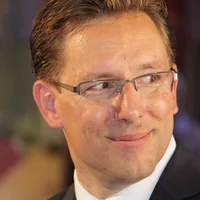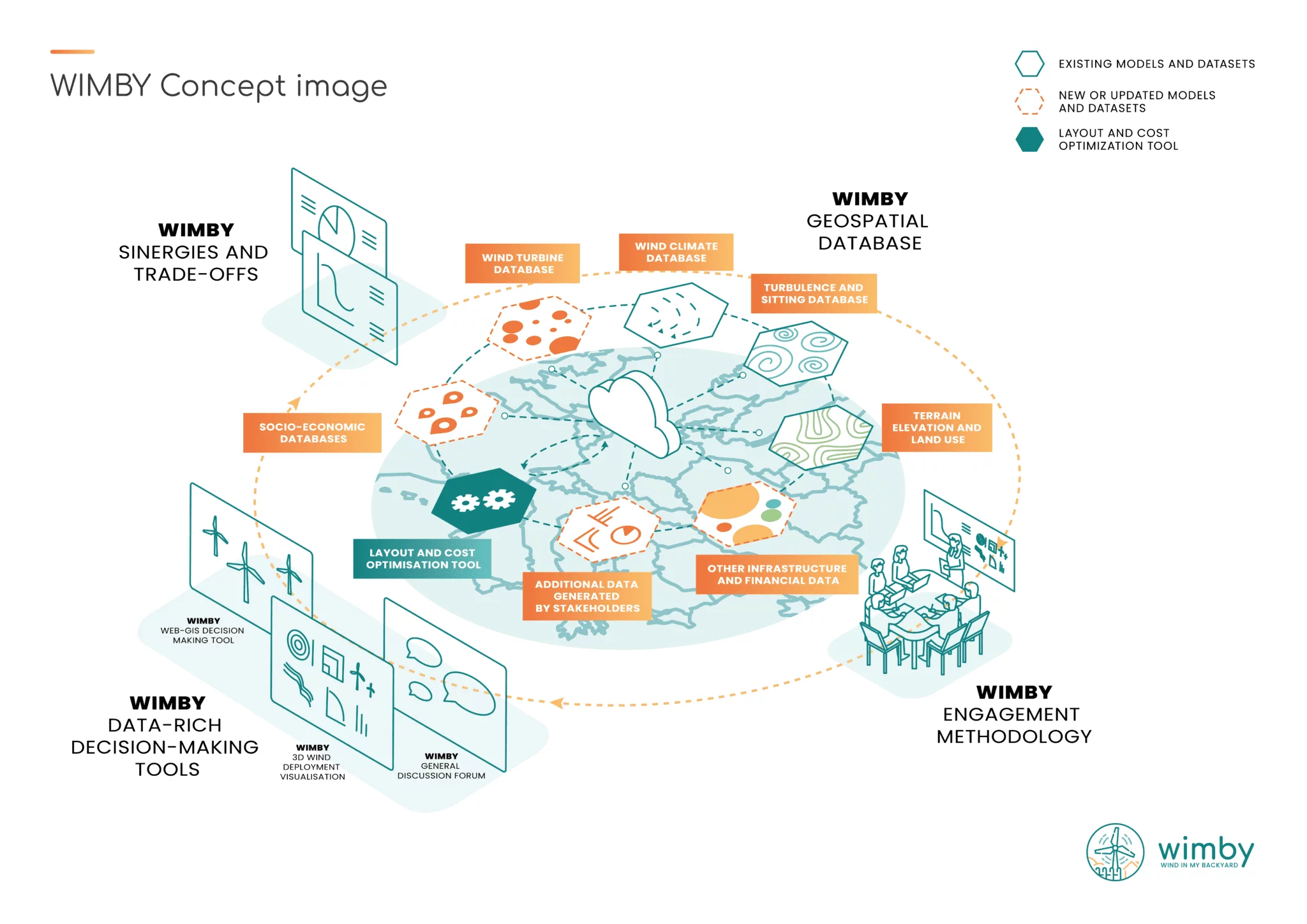The WIMBY project is dedicated to increasing the use of wind power as a renewable energy source by addressing challenges that threaten its deployment, such as restrictive regulations and negative public perception. Innovative models are used to assess wind power development impacts and potential conflicts and synergies, while guidelines are developed to increase public engagement. The project results are then translated into practical information for stakeholders to make informed decisions and shared via open-access repositories and social media. In addition, the project will provide a Web-GIS interactive platform to enhance the accessibility and usability of the information and allow knowledge exchange from various stakeholders. The platform enables the early engagement of local stakeholders and citizens, involving them from the beginning of the project in the planning, implementation, and operating processes of wind farm deployment. By facilitating societal engagement and support for wind power, the project aims to contribute to the decarbonization strategy of the EU.
The PSI’s technology assessment group contributes to several activities and related work packages in WIMBY, including Life Cycle Assessment (LCA), modeling of noise, risk assessment of accidents and Multi-Criteria Decision Analysis (MCDA). A new life cycle assessment model for wind turbines and wind farms in Europe is being used to determine their environmental impact and resource requirements. This open-source Python model will also allow calculation of health impacts on the population due to noise emissions. Risk assessment will be used to determine health impacts of accidents on both workers and the population. The MCDA will be used to assess the acceptance, satisfaction and preferences of citizens and specific stakeholders in relation to wind energy and to take them into account in the planning of new installations. Finally, all this will be applied in a WIMBY case study to increase the acceptance and to support the local implementation of wind energy with recommendations for practitioners.
Project details
Duration: 2023-2025
Funding:
- Swiss State Secretariat for Education, Research and Innovation (SERI)
- European Union’s Horizon Europe research and innovation
Project of EC Horizon Europe under grant agreement No. 101083460.
Coordinators:
Partners:
- Danmarks Tekniske Universitet
- Internationales Institut Für Angewandte Systemanalyse (IIASA)
- Universität Für Bodenkultur Wien
- Universitetet i Oslo
- Nazka Mapps BVBA
- Kelso Institute Europe
- Deep Blue Srl
- Politecnico di Torino
- Università degli studi di Palermo
- Associacao Portuguesa de energias renovaveis
- Multiconsult Norge AS
- ETH Zürich
- Paul Scherrer Institut
- University College London

